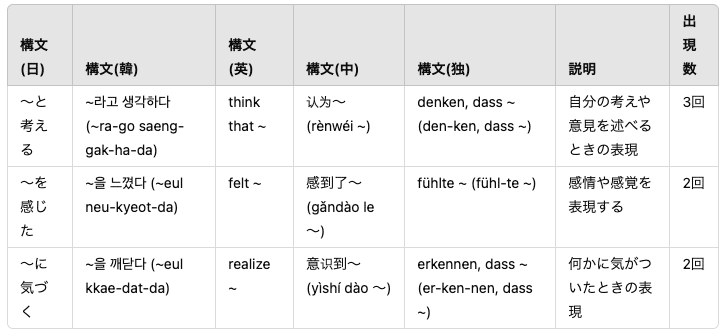
【DAY28】やる気を高める2つのカギ〜AIで進化する語学学習記〜
生きるエネルギーの源
幼い頃、私はよく星空を見上げては、「生きるエネルギーってどこから来るのだろう」と考えていた。夜空に輝く星々は、まるで無限のエネルギーを秘めているように感じられた。
大人になるにつれ、その答えを求めて心理学を学び始めた。モチベーションには「内発的動機づけ」と「外発的動機づけ」があり、それぞれが人の行動を支えていることを知った。しかし、それでも心の中の空白は埋まらなかった。
ある日、古い友人と再会した。彼は世界中を旅して、多くの人々と出会い、様々な経験をしてきたという。彼の瞳は生き生きと輝いていた。
「どうしてそんなにエネルギッシュでいられるの?」と尋ねると、彼は微笑んで答えた。「自分のエネルギーを、自分だけでなく周りの人や自然に向けているからさ。」
その言葉にハッとした。私はこれまで、自分の内側ばかりを見つめていたのではないかと。
その日から、私は日々の習慣を見直すことにした。まず、朝起きたら深呼吸をして、今日という一日に感謝する。そして、自分ができる小さなことでも、誰かのためになることを心がける。
勉強や仕事も、「自分のため」ではなく「誰かの役に立つため」と考えると、不思議とやる気が湧いてくる。エネルギーは自分の中にあるだけでなく、他者や自然とのつながりからも生まれるのだと実感した。
夜、再び星空を見上げると、以前よりも星が輝いて見えた。私の中で、生きるエネルギーの源が見つかった気がした。
The Source of Life's Energy
As a child, I often gazed up at the starry sky, wondering, "Where does life's energy come from?" The stars twinkling in the night seemed to hold infinite energy.
As I grew older, I began studying psychology in search of answers. I learned that motivation consists of "intrinsic" and "extrinsic" factors, each supporting human actions. Yet, the void in my heart remained unfilled.
One day, I reunited with an old friend. He had traveled the world, met countless people, and had a wealth of experiences. His eyes sparkled with vitality.
"How do you stay so energetic?" I asked. He smiled and replied, "Because I direct my energy not just toward myself but also toward others and nature."
His words struck me. Perhaps I had been focusing only on my inner self all this time.
From that day on, I decided to reassess my daily habits. First, I would take a deep breath upon waking and express gratitude for the new day. Then, I would aim to do even small things that could benefit someone else.
When I thought of studying and work not as "for myself" but "to help others," motivation welled up unexpectedly. I realized that energy doesn't just come from within but also arises from connections with others and nature.
That night, when I looked up at the stars again, they seemed to shine brighter than before. I felt as if I had found the source of life's energy within myself.
삶의 에너지의 원천
(Salm-ui eneoji-ui woncheon)
어린 시절, 저는 종종 밤하늘을 올려다보며 "삶의 에너지는 어디에서 오는 걸까?"라고 생각하곤 했습니다. 밤하늘에 빛나는 별들은 마치 무한한 에너지를 품고 있는 것처럼 느껴졌습니다.
성장하면서 그 답을 찾기 위해 심리학을 공부하기 시작했습니다. 모티베이션에는 "내적 동기"와 "외적 동기"가 있으며, 각각이 사람의 행동을 지탱한다는 것을 알게 되었습니다. 그러나 마음 속의 공허함은 채워지지 않았습니다.
어느 날, 오랜 친구와 재회했습니다. 그는 전 세계를 여행하며 많은 사람들과 만나 다양한 경험을 했다고 합니다. 그의 눈동자는 생기로 가득했습니다.
"어떻게 그렇게 에너지가 넘쳐?"라고 묻자, 그는 미소 지으며 대답했습니다. "내 에너지를 나 자신뿐만 아니라 주변 사람들과 자연에 향하고 있기 때문이야."
그의 말에 문득 깨달음이 왔습니다. 저는 그동안 제 내면만 바라보고 있었던 것이 아닐까 하고요。
그날부터 저는 일상의 습관을 다시 점검하기로 했습니다. 먼저 아침에 일어나면 심호흡을 하고, 오늘이라는 하루에 감사했습니다. 그리고 내가 할 수 있는 작은 일이라도 누군가에게 도움이 되도록 노력했습니다。
공부나 일도 "나를 위해"가 아니라 "누군가에게 도움이 되기 위해"라고 생각하니 신기하게도 의욕이 솟아났습니다. 에너지는 내 안에만 있는 것이 아니라 타인이나 자연과의 연결에서 생겨난다는 것을 실감했습니다。
밤에 다시 별을 올려다보니 이전보다 더 밝게 빛나는 것 같았습니다. 제 안에서 삶의 에너지의 원천을 찾은 듯한 기분이 들었습니다。
生命能量的源泉
(Shēngmìng néngliàng de yuánquán)
小时候,我常常仰望星空,思考着:“生命的能量从何而来?”夜空中闪烁的星星,仿佛蕴藏着无限的能量。
随着成长,我开始学习心理学,寻找答案。我了解到动力有“内在动机”和“外在动机”,它们各自支撑着人的行为。然而,内心的空虚感仍未填补。
一天,我与一位老朋友重逢。他周游世界,结识了无数人,拥有丰富的经历。他的眼睛里充满了活力。
“你怎么能保持这么充沛的精力?”我问道。他微笑着回答:“因为我把能量不仅仅用于自己,还用于他人和自然。”
他的话让我猛然醒悟。或许我一直只关注自己的内心世界。
从那天起,我决定重新审视自己的日常习惯。首先,醒来时深呼吸,对新的一天表示感激。然后,哪怕是微小的事情,也要努力去帮助他人。
当我把学习和工作看作“为了他人”而非“为了自己”时,意外地涌现出动力。我意识到,能量不仅来自内心,也来自与他人和自然的联系。
那天夜里,我再次仰望星空,星星似乎比以前更明亮了。我仿佛在内心找到了生命能量的源泉。
Die Quelle der Lebensenergie
Als Kind blickte ich oft zum Sternenhimmel hinauf und fragte mich: "Woher kommt die Lebensenergie?" Die funkelnden Sterne schienen unendliche Energie zu besitzen。
Als ich älter wurde, begann ich Psychologie zu studieren, um Antworten zu finden. Ich erfuhr, dass Motivation aus "intrinsischen" und "extrinsischen" Faktoren besteht, die jeweils menschliches Handeln unterstützen. Doch die Leere in meinem Herzen wurde dadurch nicht gefüllt。
Eines Tages traf ich einen alten Freund wieder. Er hatte die Welt bereist, viele Menschen getroffen und vielfältige Erfahrungen gesammelt. Seine Augen funkelten vor Vitalität。
"Wie schaffst du es, so energiegeladen zu sein?" fragte ich. Er lächelte und antwortete: "Weil ich meine Energie nicht nur auf mich selbst, sondern auch auf andere und die Natur richte."
Seine Worte trafen mich. Vielleicht hatte ich die ganze Zeit nur auf mein Inneres geschaut。
Von diesem Tag an beschloss ich, meine täglichen Gewohnheiten zu überdenken. Zunächst nahm ich nach dem Aufwachen einen tiefen Atemzug und war dankbar für den neuen Tag. Dann bemühte ich mich, selbst kleine Dinge zu tun, die jemandem helfen könnten。
Als ich darüber nachdachte, dass Lernen und Arbeit nicht "für mich", sondern "um anderen zu helfen" sind, stieg unerwartet Motivation in mir auf. Ich erkannte, dass Energie nicht nur aus dem Inneren kommt, sondern auch aus der Verbindung zu anderen und zur Natur entsteht。
Als ich in jener Nacht wieder zum Sternenhimmel aufsah, schienen die Sterne heller zu leuchten als zuvor. Ich hatte das Gefühl, die Quelle der Lebensenergie in mir gefunden zu haben。
AIのフィードバック
K(Keep:良かった点)
自己発見のプロセスが明確に描かれている:幼少期から現在に至るまでの心の変化が丁寧に描写されており、読者は主人公の成長を追体験できます。
他者や自然とのつながりの重要性を強調している:エネルギーの源が自分自身だけでなく、他者や自然との関係にあるというメッセージが深く伝わってきます。
シンボリックな星空の描写が効果的:星空を見上げる場面が冒頭と結末に配置されており、物語に統一感と深みを与えています。
P(Problem:改善が望まれる点)
心理学の学びに関する具体性の欠如:モチベーション理論について触れていますが、どのようにそれが自身の疑問と結びつかなかったのか、具体的な説明が不足しています。
友人との会話の深掘りが不足している:友人がどのような経験を通じてエネルギーを得ているのか、もう少し詳しく描写すると説得力が増します。
文章のリズムやテンポが単調:全体的に同じような文構造が続いており、読み手の興味を持続させる工夫があると良いでしょう。
T(Try:次回試してほしい点)
心理学の学びと自身の葛藤を詳しく描く:学んだ内容と自分の感じている空白とのギャップを具体的に描写することで、読者の共感を深められます。
友人のエピソードを具体的に追加する:友人が旅先で得た具体的なエピソードや、人々との交流を描くことで、メッセージの説得力が高まります。
文章表現に変化をつける:短い文と長い文を組み合わせたり、比喩や感覚的な表現を用いることで、文章にリズムと彩りを加えてみてください。
K (Keep: Positive Aspects)
Clear depiction of the self-discovery process: The careful portrayal of the narrator's emotional journey from childhood to the present allows readers to experience their growth.
Emphasis on the importance of connections with others and nature: The message that the source of energy lies not only within oneself but also in relationships with others and nature is powerfully conveyed.
Effective use of the symbolic starry sky: Placing the scenes of gazing at the stars at both the beginning and the end adds unity and depth to the narrative.
P (Problem: Areas for Improvement)
Lack of specificity regarding psychological studies: While motivation theories are mentioned, there is insufficient explanation of how they failed to fill the narrator's inner void.
Insufficient depth in the conversation with the friend: Elaborating more on how the friend gains energy through his experiences would enhance the essay's persuasiveness.
Monotonous rhythm and tempo in writing: The similar sentence structures throughout may cause readers to lose interest; varying the structure could improve engagement.
T (Try: Suggestions for Next Time)
Elaborate on psychological studies and personal struggles: By detailing the gap between what was learned and the internal feelings, you can deepen reader empathy.
Add specific anecdotes from the friend's experiences: Including concrete stories of the friend's travels and interactions can strengthen the message's impact.
Introduce variety in sentence structure and expression: Mixing short and long sentences and using metaphors or sensory descriptions can add rhythm and color to the writing.
学ぶ
1. 頻出単語

2. 頻出熟語

3. 頻出構文

